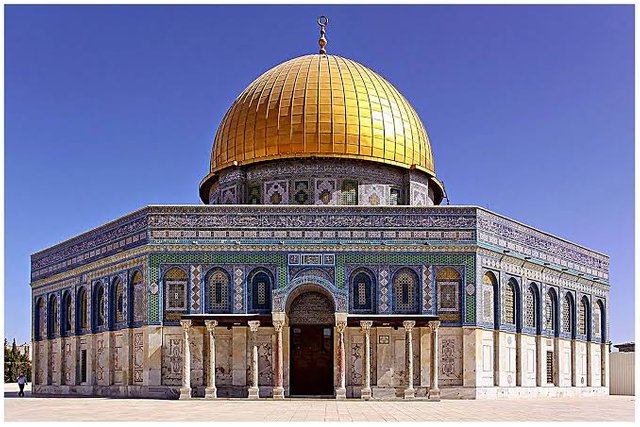PART:-•••••43...
⏰ 8 . 25 PM
This was actually a preliminary sign that Allah had revealed by taking His Prophet and His Kaaba, because you see that Bayt al-Maqdis was the Qibla of the people of Islam during his time and its inhabitants were Muslims.
Despite this, it was dominated by the enemies of Allah, i.e. the polytheists, as is evident from the attack of Bukht-e-Nasr (587 BC) and the occupation by the people of Rome (70 AD). But on the contrary, the Christians could not gain control over the Kaaba, although at that time they were Muslims and the inhabitants of the Kaaba were polytheists.
Then this event occurred in such circumstances that the news of it reached most of the civilized world of that time, namely Rome and Persia. Because Abyssinia had close ties with the Romans and on the other hand the Persians had an equal eye on the Romans and they kept a constant eye on the events that happened to the Romans and their allies.
This is the reason why the Persians quickly took over Yemen after this incident. Now since these two governments were the representatives of an important part of the civilized world at that time. Therefore, due to this incident, the eyes of the world were drawn towards the Kaaba, they were shown an open divine sign of the honor and greatness of the House of Allah. And it was firmly established in the hearts that this house had been chosen by Allah for sanctification.
Therefore, the future emergence of a person from the population here with the claim of prophethood would be exactly in accordance with the requirements of this incident. And it would be an image of the divine wisdom that was hidden in the help of the polytheists against the believers in ways that are above the world of causes.
Abdul Muttalib had a total of ten sons, whose names are: - Harith, Zubair, Abu Talib, Abdullah, Hamza (may Allah be pleased with him), Abu Lahab, Ghidaq, Maqum, Saffar, and Abbas (may Allah be pleased with him). Some have said that there were eleven of them. One was named Qatham, and some have said that there were thirteen. One was named Abdul Kaaba, and one was named Hajal.
But the ten-k scholars say that the other name of Maqum was Abdul Kaaba, and the other name of Ghidaq was Hajal, and there was no one named Qatham among the children of Abdul Muttalib. Abdul Muttalib had six daughters. Their names are: Umm al-Hakim, whose name is Bayda, Barrah, Atika, Safiya, Azwi, and Umaima.
To be continued.....
